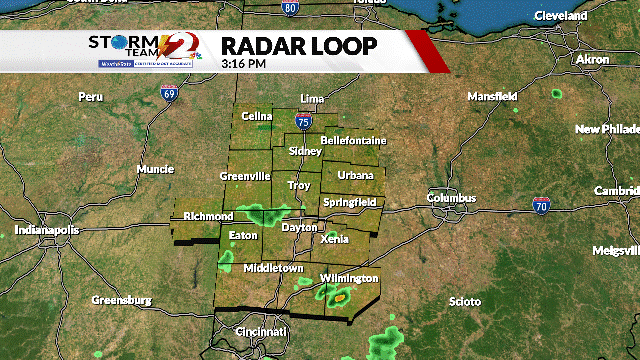SPRINGFIELD, Ohio (WDTN) – Mosquitos with West Nile virus continue to be found in Clark County.
Health officials say Recent mosquito samples collected by the Clark County Combined Health District (CCCHD) have tested positive for West Nile Virus. The samples were collected from the areas of Croft Road and Middle-Urbana Road. Additional positive samples are still being found in the western and southwestern areas of the City of Springfield.
The CCCHD will continue nighttime mosquito treatment in the areas where positive samples have been found. As an additional control measure, the CCCHD will be treating Eagle City Soccer Complex and Veterans Park in anticipation of the weekend events which are expected to draw thousands of people.
West Nile virus is most commonly spread by infected mosquitoes and can lead to severe fever, encephalitis (inflammation of the brain) or meningitis (inflammation of the lining of the brain and spinal cord).
The most common species in Ohio is the northern house mosquito, Culex pipiens. Mosquitoes become infected when they feed on infected birds. Infected mosquitoes can then spread the virus to humans and other animals when they bite.
Health officials say approximately 80 percent of people who are infected with WNV will not show any symptoms at all, but there is no way to know in advance if you will develop an illness or not. Those who do develop symptoms usually do so between three to 14 days after they are bitten by the infected mosquito:
About one in 150 people infected with WNV will develop severe illness. The severe symptoms can include high fever, headache, neck stiffness, stupor, disorientation, coma, tremors, convulsions, muscle weakness, vision loss, numbness and paralysis. These symptoms may last several weeks, and neurological effects may be permanent.
Up to 20 percent of people who become infected will have symptoms that can include fever, headache, body aches, nausea, vomiting and sometimes swollen lymph glands or a skin rash on the chest, stomach and back. Symptoms can last for a few days to as long as several weeks.
There is no specific treatment for WNV infection, and care is based on symptoms.
The best way to avoid the West Nile Virus infection is to prevent mosquito bites: AVOID, PLAN, STOP
AVOID:
- Apply repellents on exposed skin registered with the U.S. Environmental Protection Agency (EPA).
- Wear long sleeves and pants or consider staying indoors as much as possible.
PLAN:
- If traveling, check ahead of time for travel advisories, and plan accordingly.
- Have EPA approved mosquito repellent and longs pants and shirts available to avoid bites.
- Do outside activities at times when mosquito activity is less.
STOP:
- Get rid of mosquito breeding sites by emptying or treating any standing water on your property (even small amounts of standing water can be a breeding site for mosquitos).
- Make sure screens on windows and doors are free of holes or rips. You may also opt to utilize air conditioning instead of open windows if possible.
In response to the confirmed presence of West Nile Virus, CCCHD is
- Inspecting the affected area and working with property owners to reduce breeding sources by draining stagnant water or treating stagnant water with products containing Bacillus thuringiensis israelensis (Bti). Bti is safe for humans and pets.
- Distributing informational flyers in the affected area.
- Treating the affected area with Duet® to reduce the adult mosquito population when weather permits. While safe for humans and pets, residents who have a concern about treatment may request treatment be limited near their property by calling 937-390-5600 or emailing the request and their address to environmental@ccchd.com.
- Continuing to monitor for West Nile Virus.
For more information contact the CCCHD at 937-390-5600 or go to our website at www.ccchd.com.
















































